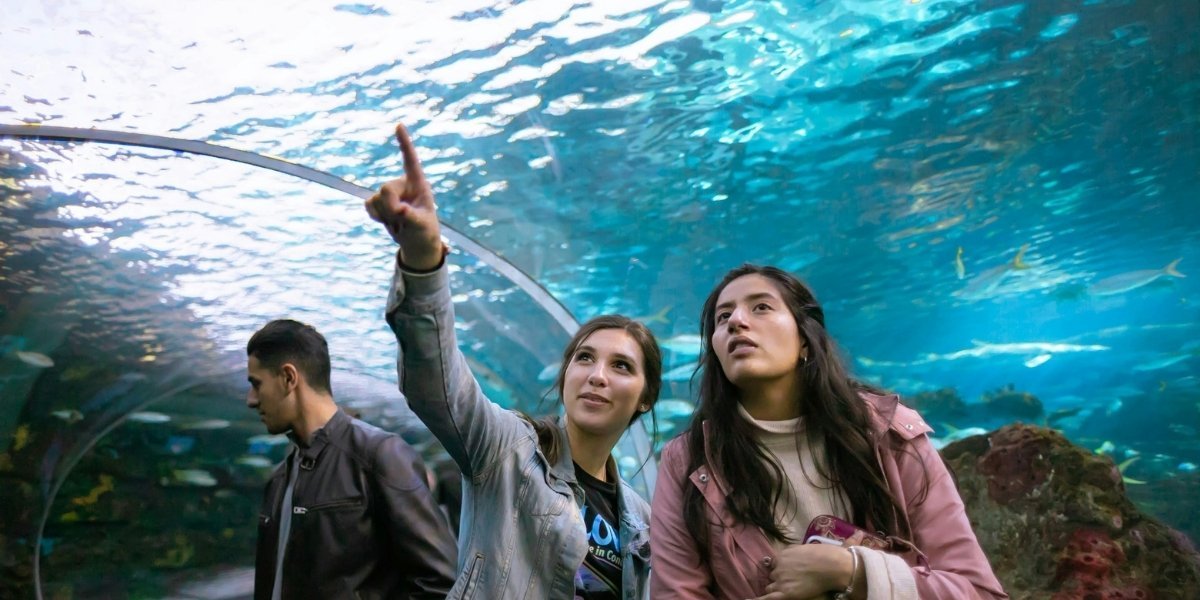What Is Dry Tripping And Why Are More People Choosing It?
Dry tripping refers to traveling without alcohol. It’s not about restrictions or rules, but rather about shifting focus, away from bars and late-night parties and toward clear-headed, immersive experiences. More people are choosing to skip the drinks while they travel, either because they’re sober, sober-curious, or just want to try a different way of exploring. Some want better sleep or more energy. Others are simply curious what it feels like to experience a place with their full senses engaged. Whatever the reason, dry tripping is picking up traction, especially among younger travelers who prioritize wellness and authenticity.
Skipping alcohol while on vacation used to mean sacrificing the social side of things, but that’s no longer true. A growing number of destinations, hotels, and local experiences are becoming more inclusive for travelers who don’t drink. Whether it’s enjoying a thoughtfully crafted mocktail on a rooftop at sunset or waking up early for a sunrise hike with no trace of a hangover, the idea of a dry trip is expanding what it means to enjoy time away.
How Is Dry Tripping Changing The Way People Travel?

Photo Credit: Unsplash.com
Travelers on dry trips are planning their days differently. Instead of centering itineraries around nightlife or winery tours, they’re seeking out earlier, more active experiences. Morning yoga sessions, trail hikes, outdoor markets, and cooking classes are becoming more common highlights. These kinds of activities feel more approachable when travelers aren’t recovering from the night before.
Social interactions are also shifting. Without the blur of alcohol, conversations often become more intentional. People report feeling more present and connected with both locals and fellow travelers. There’s a comfort in knowing the evening won’t end in overindulgence or regret, and that creates space for more honest and memorable moments.
It’s not about being serious or overly health-focused, either. Many dry trippers still enjoy downtime, good food, and relaxation. But the emphasis tends to be on balance, not excess. Some choose to travel dry just once a year to reset. Others stick with it because they find it enhances how they experience the world. Either way, the result is often a clearer memory of the trip, fewer regrets, and sometimes, a deeper connection to the places they visit.
What Are Travelers Gaining By Skipping Alcohol On Trips?
There are noticeable physical benefits to skipping alcohol during travel. Sleep improves quickly. Jet lag becomes easier to manage. Without alcohol in the system, hydration and digestion improve, and energy levels tend to stay more stable throughout the day. People often describe feeling more alert and comfortable in their own skin while exploring new environments.
There’s also a financial benefit. Alcohol is one of the fastest ways to increase travel expenses. Cutting it out, even temporarily, often frees up room in the budget for more meaningful experiences, like guided excursions, wellness treatments, or simply extending the trip by a day or two.
Emotionally, dry trips can reduce anxiety for some. Traveling in unfamiliar settings already stretches comfort zones. Without the unpredictability that alcohol can sometimes bring, some feel more grounded and secure, especially those traveling solo. That feeling of control can add to the sense of empowerment and confidence that makes travel such a rewarding experience in the first place.
How Are Destinations And Services Adapting To Dry Tripping?
As interest in dry tripping grows, more hospitality services are adapting to meet the demand. Hotels are updating their menus to include creative non-alcoholic options, while some even curate full experiences around sober wellness. Spas, tea ceremonies, cold plunges, and sound baths are replacing the more traditional resort bar crawl. Some boutique travel providers now design itineraries around sober living, offering everything from surf camps to desert retreats that intentionally avoid alcohol.
Even city nightlife is starting to shift. In some places, zero-proof bars are popping up, offering complex, adult-focused beverages that appeal to those who want the ritual of a drink without the effects. These spots provide the same social buzz without alcohol, and they’re drawing crowds not just of abstainers but of people who are simply looking for something different.
The shift is also cultural. Tour guides and experience providers are becoming more aware that not everyone drinks, and they’re offering flexible options. That might mean wine tasting tours that include grape juice or farm visits that spotlight other sensory elements beyond just taste. It’s all about expanding the definition of what hospitality can look like.
Why Does Dry Tripping Feel Different From Typical Wellness Travel?

Photo Credit: Unsplash.com
Dry tripping often overlaps with wellness travel, but they aren’t the same. Wellness trips tend to focus heavily on structured health goals, detoxes, meal plans, fitness routines. Dry trips can include those things, but they’re often more fluid, with wellness happening as a side effect rather than the primary aim. Someone might choose a dry trip not to detox, but simply to explore with more clarity or avoid a hangover.
There’s also less pressure to meet a specific outcome. It’s less about fixing something and more about seeing what a trip feels like when alcohol isn’t part of the picture. That subtle difference makes it easier for people to try dry tripping without needing to commit to an identity around sobriety. It can just be a new way to travel, or a way to experience familiar destinations differently.
Over time, dry tripping may start to shift broader travel culture. As more people try it, even just for one trip, they often carry parts of that experience into other parts of their life. Maybe it’s enjoying alcohol less often, or just being more aware of how they spend their energy. Either way, dry tripping offers a fresh approach to travel that focuses on depth, clarity, and the kind of connection that lingers long after the return flight.












